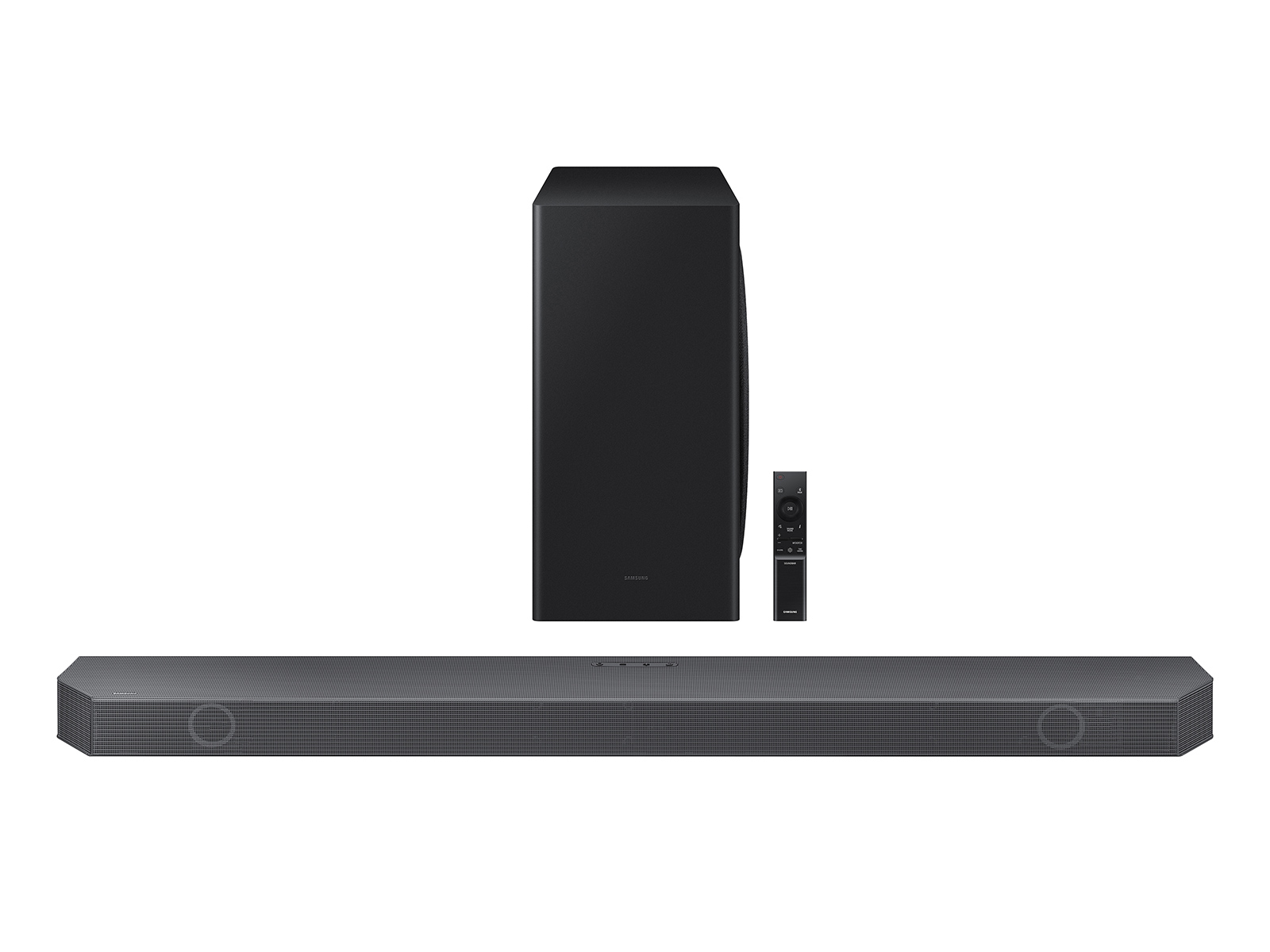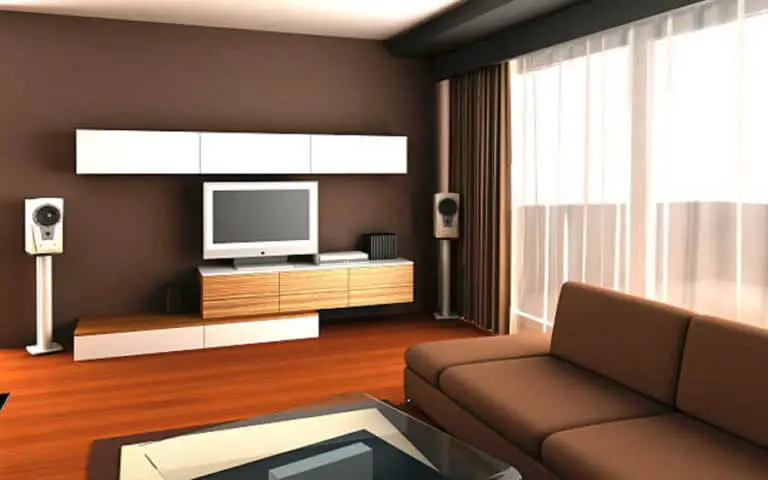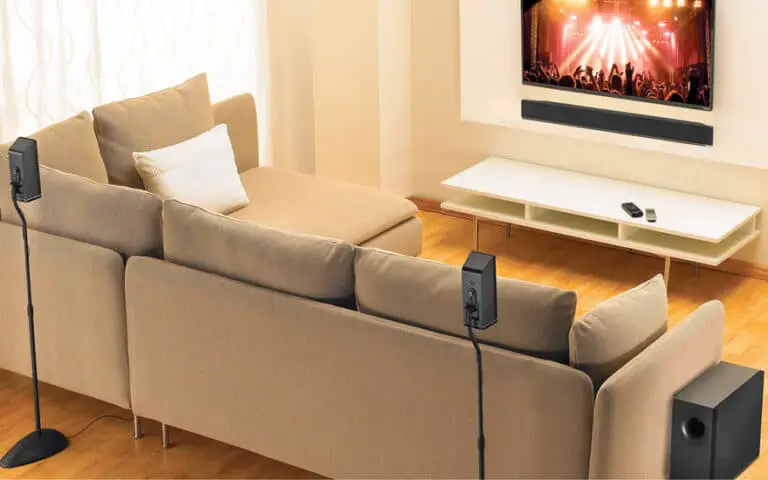If you are looking to improve your home theater experience, then a soundbar is a great investment. However, understanding the various channels on a soundbar and how they affect your audio can be confusing. In this blog, I’ll dive into what channels are on a soundbar, how they work, and why they matter. Whether you’re a movie buff or just looking to upgrade your TV’s sound, this blog is for you!

What Are Channels On Soundbar?
So, you may have heard the term “channels” when researching soundbars. Simply put, channels refer to the number of individual speakers inside the device. This affects the audio quality and overall surround sound experience. For example, a 2.1 soundbar has two channels – a left and a right – with a subwoofer for added bass.
On the other hand, a 5.1 soundbar adds more channels for rear or surround speakers. Additionally, a 3.1 soundbar includes a center channel for improved dialogue clarity. When choosing a soundbar, it’s important to consider the layout of your room, compatibility with your TV and other devices, and additional features such as Bluetooth connectivity and built-in voice assistants. Ultimately, understanding the difference between 2.0 and 5.1 channel soundbars will help you make an informed decision for your home theater system.

Should I get a Soundbar with 2.1 or 5.1 channels?
Now that you know what channels on a soundbar mean, the question is whether you should go for a 2.1 or 5.1 channel setup. It all depends on your preferences and needs. If you’re looking to enhance your music listening experience or have limited space, a 2.1 channel soundbar might be sufficient.
However, if you want a more immersive sound for movies and TV shows, a 5.1 channel soundbar would be the way to go. Keep in mind that a 5.1 channel soundbar is much larger than a 2.1 channel soundbar, so if space is limited, it may not be the most practical option. Ultimately, it comes down to your personal preferences, your room’s size and layout, and the features you want.

Different types of soundbar channels
When shopping for a soundbar, you may come across different types of soundbar channels such as 2.0, 2.1, 5.1, or even 7.1. These numbers correspond to the number of speakers or channels inside the soundbar. For example, a 2.0 soundbar has two channels, left and right, which are enough for stereo sound.
A 2.1 soundbar, on the other hand, has two channels plus a subwoofer for added bass. A 5.1 soundbar contains five channels, including a center channel for dialogue and two rear channels for surround sound, plus a subwoofer. If you have a larger room and want a more immersive audio experience, a 5.1 soundbar may be a better choice. Understanding the different types of soundbar channels can help you choose the right soundbar for your needs and preferences.

What Do the Numbers on Soundbars Mean?
When you compare soundbars, you will notice numbers next to the model names, which indicate the number of channels in the soundbar. The first number signifies the number of speakers in the soundbar, with the second number referring to the presence of a subwoofer.
For example, a 2.1 soundbar has two speakers and one subwoofer. On the other hand, a 5.1 soundbar has five speakers and one subwoofer. It is essential to understand that the number of channels can affect the quality and strength of the sound. You might want to choose a soundbar with more channels if you prefer a full and immersive sound experience.

How to Choose the Right One for Your Home?
When it comes to choosing the right soundbar for your home, there are a few things you need to consider. First, think about the size and layout of your room. You’ll want to make sure the soundbar you choose is suitable for the configuration of your space. Additionally, if you really want to enhance your audio experience, look for a soundbar with additional features like Bluetooth connectivity and built-in voice assistants.

1. Understand the difference between 2.0 and 5.1 channel soundbars
When it comes to choosing a soundbar for your home theater, understanding the differences between 2.0 and 5.1 channel soundbars is crucial. A 2.0 soundbar only has two stereo speakers, which can still enhance your TV’s audio quality, especially for those looking for a basic setup. However, a 5.1 soundbar includes additional channels, such as a center and surround sound speakers, creating a more immersive and dynamic audio experience.
It’s important to consider the size and layout of your room before making a decision, as a 5.1 soundbar may be too much for a smaller space. Additionally, look for additional features like Bluetooth connectivity and built-in voice assistants that can enhance your audio experience even further. Lastly, check for compatibility with your TV and other devices before making a purchase.

2. Consider the size and layout of your room
The number of channels on a soundbar can have a big impact on the overall audio quality. But even the best soundbar with multiple channels won’t deliver the desired effect if it’s too small or too large for the space. That’s why you need to think about the size of your room and where you’ll be placing the soundbar.
If you have a large living area, you might want to choose a wider soundbar or even a separate subwoofer to create a more immersive experience. On the other hand, if you have a small bedroom or apartment, a compact soundbar with fewer channels might be enough to enhance your TV’s sound.
Additionally, you should consider the layout of your room and where you’ll be sitting in relation to the soundbar. Make sure the sound reaches you effectively, and there are no obstacles that can interfere with the sound quality. By taking both size and layout into account, you can pick the perfect soundbar that will enhance your entertainment experience to the fullest.

3. Look for additional features such as Bluetooth connectivity and built-in voice assistants
When choosing a soundbar for your home, it is important to consider additional features such as Bluetooth connectivity and built-in voice assistants. These features will enhance your listening experience and make controlling your soundbar even easier. With Bluetooth connectivity, you can easily stream music from your phone or other device directly to your soundbar, allowing you to easily switch between audio sources.
Built-in voice assistants, such as Amazon Alexa or Google Assistant, can make controlling your soundbar as simple as using your voice. In addition to these features, it is also important to ensure compatibility with your TV and other devices to ensure a seamless setup. By considering all of these factors, you can find the perfect soundbar to suit your needs and enhance your home theater experience.

4. Check for compatibility with your TV and other devices
When choosing a soundbar, it’s important to make sure that it is compatible with your TV and other devices. Check for the types of connections your TV has and make sure that the soundbar you choose can connect to those ports. If your TV has HDMI ARC, make sure that the soundbar has an HDMI ARC port as well.
Additionally, if you plan on using other devices such as a Blu-Ray player, make sure that the soundbar has enough inputs to connect all of your devices. Compatibility with your TV and other devices is crucial to getting the most out of your soundbar and enjoying high-quality audio.
How Soundbar Channels Influence Audio Quality?
When it comes to choosing a soundbar, the number of channels is an important factor to consider in terms of audio quality. A 4.1 channel soundbar, for example, offers higher quality than a 3.1 version. The number of channels directly corresponds to the number of speakers in the soundbar, which can greatly impact the strength and quality of the sound.
More channels also provide options for surround sound speakers, resulting in a more immersive listening experience. As someone who prioritizes sound quality, I always go for the soundbar with the highest number of channels available within my budget. It’s important to remember that even the best soundbars may not completely replace TV speakers, but will certainly provide a more robust and immersive sound experience.

Can Soundbars replace TV speakers?
As someone who has tried both TV speakers and a soundbar, I can confidently say that a soundbar can definitely replace your TV speakers. The difference in audio quality is remarkable. TV speakers are often lackluster and limited in terms of volume and clarity, whereas a soundbar offers a more immersive and dynamic audio experience.
A high-quality soundbar can even provide a surround sound effect without the need for additional speakers. So, to answer the question, yes, a soundbar can replace your TV speakers and greatly enhance your overall viewing experience.

Are soundbars better than surround sound?
In my experience, while soundbars can provide decent audio quality for smaller rooms or casual viewers, they simply cannot compete with the immersive and high-quality sound that true surround sound systems can offer. Soundbars may be sleek and offer some advanced features, but they are limited in terms of channels and speaker placement, resulting in less dynamic and less believable sound.
In contrast, a true surround sound system with separate speakers placed strategically around the room can give you multidimensional sound that puts you right in the middle of the action. Of course, it’s important to consider your personal needs, budget, and room size before deciding which option is best for you. But in my opinion, if you want the best home theater experience possible, a full surround sound setup is definitely worth the investment.

Do Soundbars work on TVs?
Yes, absolutely! Soundbars are specifically designed to work with Television sets to improve their audio quality. In fact, connecting a soundbar to a TV is incredibly simple, and manufacturers always provide the necessary cables and instructions in the package.
Most soundbars come equipped with an optical digital connection or HDMI port to connect to a TV, and users will need to follow the instructions to sync the device with their TV. Soundbars enhance the listening experience of TV shows, movies, and music by providing clearer and richer audio quality, allowing users to enjoy their entertainment to the fullest.

Summary
Overall, understanding the different channels on soundbars is crucial in selecting the right one for your home. As mentioned, the numbers on soundbars indicate the number of channels and subwoofers included, with higher numbers indicating more immersive sound. However, factors like room size and layout, connectivity options, and compatibility also play a vital role in choosing the right soundbar.
While soundbars can generally replace TV speakers and provide better audio quality, they may not necessarily be better than surround sound systems in terms of overall immersive experience. Ultimately, when selecting a soundbar, it’s important to consider all of these factors to ensure that you get the best possible audio experience for your home setup.






